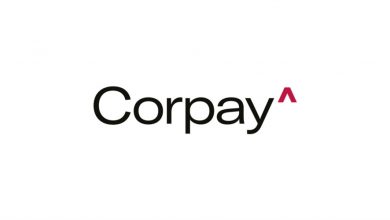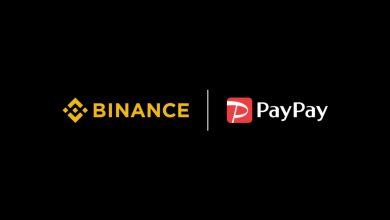Bitget Wallet Taps Brazil’s PIX to Bring Stablecoin Payments Into Daily Use

Bitget Wallet integrated Brazil’s PIX instant payment network, opening the door for everyday purchases with digital assets like USDT and USDC.
PIX and the Crypto Connection
PIX, launched in 2020 by the Central Bank of Brazil, has rapidly become the backbone of the country’s payment system. By 2024, it reportedly processed 64 billion transactions worth $4.6 trillion, outpacing both credit and debit card payments . More than 150 million Brazilians and millions of businesses rely on it daily for transactions.
Digital assets meet tradfi in London at the fmls25
According to the announcement, Bitget Wallet’s new feature allows users to scan any PIX QR code and pay with stablecoins across multiple blockchains, including Ethereum, BNB, Solana, Tron, Ton, and Base. Merchants still receive Brazilian reais, ensuring seamless settlement on their end.
“The integration of PIX marks a milestone for crypto adoption in Brazil,” commented Jamie Elkaleh, CMO of Bitget Wallet. “Our vision is to give users the freedom to pay with crypto anywhere, anytime, without barriers. By connecting to PIX, we are bridging global digital assets with Brazil’s vibrant real-time payment infrastructure, making everyday crypto use as seamless as possible.”
A Push for Everyday Use
The PIX rollout is part of Bitget Wallet’s broader strategy to expand real-world use cases for crypto in Latin America. In August, the firm launched a zero-fee Mastercard-linked crypto card that allows stablecoin spending worldwide. The wallet also supports QR-based payments through Solana Pay and regional QR code integrations in Southeast Asia.
Additionally, Bybit recently partnered with Tether to expand the adoption of cryptocurrency in Brazil. The collaboration marks another step in integrating digital assets into Brazil’s financial and consumer landscape.
Related: Tourists in Rio May Soon Pay with Crypto as Bybit and Tether Expand
As part of the initiative, Bybit and Tether are working with Visit Rio, the city’s tourism authority, to bring cryptocurrency payments into the tourism sector. The plan reportedly includes enabling tourists to pay for services, tours, and shopping in crypto, with potential perks such as discounts and USDT rewards.
The move comes at a time of rising stablecoin usage in Brazil. Central Bank Director Gabriel Galípolo recently noted that about 90% of the country’s crypto transactions involve stablecoins, mainly tied to cross-border payments
Bitget Wallet integrated Brazil’s PIX instant payment network, opening the door for everyday purchases with digital assets like USDT and USDC.
PIX and the Crypto Connection
PIX, launched in 2020 by the Central Bank of Brazil, has rapidly become the backbone of the country’s payment system. By 2024, it reportedly processed 64 billion transactions worth $4.6 trillion, outpacing both credit and debit card payments . More than 150 million Brazilians and millions of businesses rely on it daily for transactions.
Digital assets meet tradfi in London at the fmls25
According to the announcement, Bitget Wallet’s new feature allows users to scan any PIX QR code and pay with stablecoins across multiple blockchains, including Ethereum, BNB, Solana, Tron, Ton, and Base. Merchants still receive Brazilian reais, ensuring seamless settlement on their end.
“The integration of PIX marks a milestone for crypto adoption in Brazil,” commented Jamie Elkaleh, CMO of Bitget Wallet. “Our vision is to give users the freedom to pay with crypto anywhere, anytime, without barriers. By connecting to PIX, we are bridging global digital assets with Brazil’s vibrant real-time payment infrastructure, making everyday crypto use as seamless as possible.”
A Push for Everyday Use
The PIX rollout is part of Bitget Wallet’s broader strategy to expand real-world use cases for crypto in Latin America. In August, the firm launched a zero-fee Mastercard-linked crypto card that allows stablecoin spending worldwide. The wallet also supports QR-based payments through Solana Pay and regional QR code integrations in Southeast Asia.
Additionally, Bybit recently partnered with Tether to expand the adoption of cryptocurrency in Brazil. The collaboration marks another step in integrating digital assets into Brazil’s financial and consumer landscape.
Related: Tourists in Rio May Soon Pay with Crypto as Bybit and Tether Expand
As part of the initiative, Bybit and Tether are working with Visit Rio, the city’s tourism authority, to bring cryptocurrency payments into the tourism sector. The plan reportedly includes enabling tourists to pay for services, tours, and shopping in crypto, with potential perks such as discounts and USDT rewards.
The move comes at a time of rising stablecoin usage in Brazil. Central Bank Director Gabriel Galípolo recently noted that about 90% of the country’s crypto transactions involve stablecoins, mainly tied to cross-border payments




